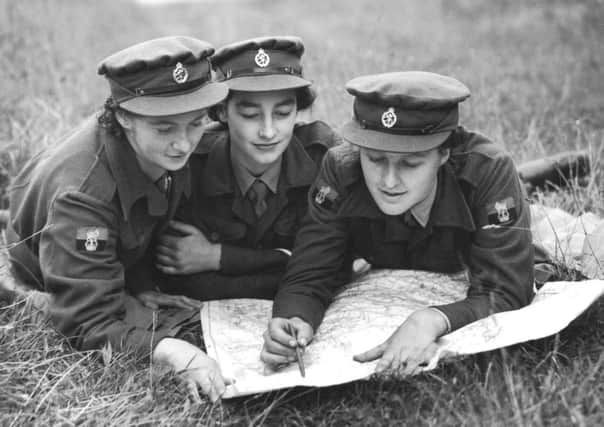Armed forces ‘spied on suspected lesbians in WRAF’


Previously secret files reveal that recruits in the Women’s Royal Air Force (WRAF) who showed signs of same-sex attraction were put under covert surveillance by the military police officers.
Documents seen by Scotland on Sunday show that airwomen who were then judged to be gay or bisexual were offered the choice of immediate dismissal, or being forced to undergo medical treatment to “cure” their homosexuality.
Advertisement
Hide AdAdvertisement
Hide AdThe ban preventing gay men and women from serving in the armed forces was lifted in 2000.
However, the Whitehall files, which have now been opened and placed in the National Archives at Kew, reveal that up until that date women suspected of “abnormal” inclinations were subjected to institutional persecution.
A confidential briefing paper entitled “Homosexual Practices Involving WRAF Airwomen” ordered station commanders to monitor and eliminate “unnatural relationships”.
It states: “In the initial stages of service life strong bonds of friendship develop between contemporaries and it is dangerous to assume that such close friendships between young airwomen involve homosexuality or are the forerunners of lesbian relationships.
“In such cases when the closeness of the friendship causes embarrassment and gives rise to speculative gossip a cautionary word of advice on behaving more maturely and showing more consideration for other members of the community is all that is required.
“However, when an officer has reason to suspect that an airwoman is a lesbian, she is to inform the station commander immediately.
“When he considers the suspicions are well founded he is to request the officer commanding the appropriate RAF police region to initiate an investigation.”
From the 1950s until the 1990s a secret “observation list” of women suspected of harbouring an attraction to other females was maintained.
Advertisement
Hide AdAdvertisement
Hide AdThose involved were placed under surveillance, interrogated by military police officers, had their letters intercepted, subjected to regular kit searches and blacklisted from being promoted.
When officers concluded “beyond doubt that an airwoman has committed a homosexual act” she was to be confronted with a stark ultimatum,
The file, which dates from 1977, states: “The Ministry of Defence (MoD) will advise the station commander that the airwoman is to be interviewed and asked if she wishes to seek medical advice.
“If she does so wish, the officer in charge of the WRAF section is to arrange for her to be seen by the station medical officer who is immediately to refer the airwoman to the consultant adviser in neuropsychiatry at the Central Medical Establishment.
“If the airwoman declined the offer of medical advice the MoD will authorise the airwoman’s discharge.” Another WRAF document, dating from the early 1980s, gives an insight into the prevailing attitude towards same-sex relations in that era.
The memo, entitled “Guidance on Instruction to Recruits on Homosexuality”, states: “Whilst it should be remembered that some of the recruits from very sheltered backgrounds will be totally ignorant of the subjects, the wide publicity in newspapers, magazines, films and TV indicates that the majority probably are well aware of what the terms ‘homosexuality’ and ‘lesbianism’ mean.”
It also warns female officers that they may be the subject of “crushes” by young recruits.
Defence Minister Anna Soubry claimed huge strides had been made in recent years and said: “The MoD and the three services want to create a workforce that is drawn from the breadth of the society we defend, that gains strength from that society’s range of knowledge, experience and talent and that welcomes, respects and values the unique contribution of every individual.”